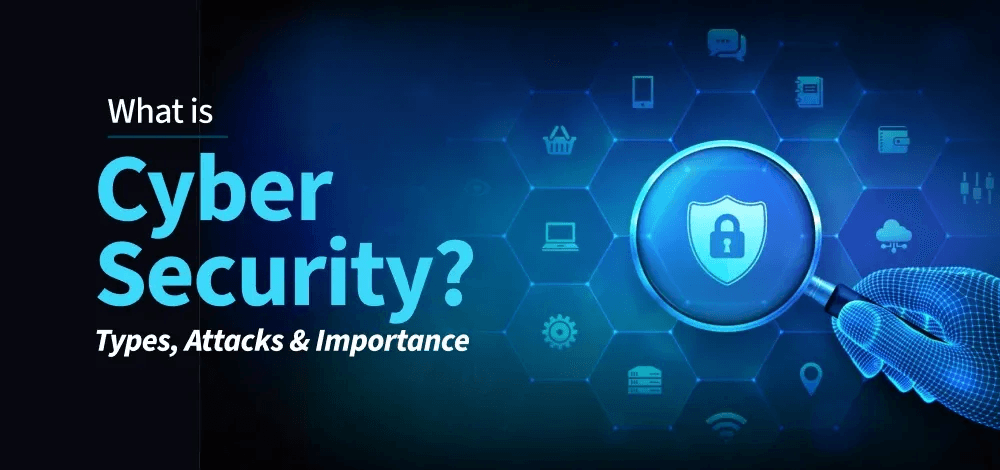Exploring Cyber Security Today: Real Stories of Vulnerable Businesses and Who Can You Trust

In our technology-driven world, cyber security has become a crucial focus for businesses of all sizes. With more companies relying on digital systems to manage important operations and store sensitive data, the risks associated with cyber threats have skyrocketed. As cybercriminals develop more advanced techniques, the impact of potential breaches can be devastating. This post aims to provide an overview of the current cyber security landscape, featuring real-life stories of businesses that have encountered vulnerabilities.
The Growing Importance of Cyber Security
Cyber security is all about protecting networks, devices, and data from unauthorized access, attacks, or damage. In an era where information is increasingly stored online, every organization—big or small—must make it a priority to safeguard its data. According to a recent report, 43% of cyber attacks target small businesses, demonstrating that size does not guarantee safety.¹
With sophisticated hacking methods, such as ransomware and phishing attacks, preying on both human and system vulnerabilities, adopting robust cyber security measures is essential. A study found that organizations with strong security practices are 2.5 times less likely to experience data breaches.²
Real Stories of Vulnerable Businesses
The following cases illustrate the serious nature of cyber attacks and the importance of preparedness:
1. Target
In 2013, retail giant Target faced a significant breach that affected over 40 million customers' credit and debit card information.³ The hackers accessed Target's point-of-sale systems via a third-party vendor, deploying malware that went undetected for weeks. Ultimately, the breach cost Target around $162 million in legal fees and settlements, along with irreparable damage to its reputation.
This incident emphasizes the need for businesses to ensure that third-party vendors maintain the same security standards as their own systems.
2. Equifax
The Equifax data breach in 2017 affected approximately 147 million people, exposing sensitive personal information. Hackers exploited a vulnerabilities in Equifax's web application framework, leading to a massive fallout that included lawsuits and long-term damage to customer trust. Equifax estimated the total cost of the breach at over $1.38 billion.⁴
This case serves as a stark reminder that even recognized companies are not immune to cyber threats, underscoring the need for regular software updates and continuous vigilance.
3. Capital One
In 2019, Capital One suffered a data breach that compromised the personal information of over 100 million customers.⁵ A former employee of a third-party cloud hosting service exploited a flaw in the system, leading to severe backlash for the company. Capital One had to pay millions in fines and faced extensive scrutiny, showing the importance of understanding risks associated with cloud storage.
These examples stress that organizations need to address vulnerabilities proactively, ensuring comprehensive access controls and audit trails.
The Evolving Landscape of Cyber Threats
Cyber threats are rapidly changing, especially with the rise of remote work and reliance on cloud services during the COVID-19 pandemic. The attack surface for cybercriminals has expanded, and phishing attempts have surged, exploiting employees' fears and uncertainties. A report indicated that 85% of organizations experienced increased phishing attacks in 2020.⁶
Moreover, as technologies like artificial intelligence become mainstream, hackers have more advanced tools at their disposal. Cyber security must adapt in order to keep data safe in this evolving landscape.
Securing Your Business
To safeguard your business, taking proactive measures is essential. Here are key practices for improving your cyber security:
Regular Training: Educate employees on recognizing phishing attacks and understanding other cyber threats. A knowledgeable workforce can act as the first line of defense against attacks.
Implement Encryption: Sensitive data should be encrypted in transit and at rest. This makes it difficult for attackers to use stolen information.
Conduct Regular Audits: Regularly auditing your systems for vulnerabilities and updating software can significantly reduce risks.
Invest in Cyber Insurance: While it won't stop cyber attacks, having cyber insurance can provide crucial financial coverage in the event of a breach.
As cyber threats grow more complex, businesses must think critically about who they trust to protect their data. Finding the right cyber security provider is vital. Look for companies that demonstrate a strong track record and focus on offering tailored security solutions. Their services should encompass every aspect of cyber security, from threat detection to compliance.
Research user reviews, seek recommendations, and evaluate credentials and certifications. A trusted partner will work collaboratively with you, understand your specific business needs, and proactively manage risks rather than merely responding to incidents.
Final Thoughts
In today's fast-paced digital world, cyber security is not just a technical requirement; it is a crucial business strategy. The stories of vulnerable businesses highlight the significant consequences that negligence can bring. Emphasis should be placed on proactive measures and fostering a culture of security awareness.
Ultimately, as we navigate cyber threats, seeking reliable partners committed to protecting your business is essential. In a landscape filled with risks, knowing who to trust with your cyber security is more important than ever.
Citations
1. Palatty, Nivedita James “51 Small Business Cyber Attack Statistics 2025.” Astra Security, 16 June 2025, www.getastra.com/blog/security-audit/small-business-cyber-attack-statistics/?utm_source=chatgpt.com.
2. “Investor Relations - Global Cisco Study Identifies Top Security Practices to Detect Threats and Ensure Business Resiliency - Cisco.” Cisco, 27 Dec. 2021, investor.cisco.com/news/news-details/2021/Global-Cisco-Study-Identifies-Top-Security-Practices-to-Detect-Threats-and-Ensure-Business-Resiliency/default.aspx.
3. “The 2013 Target Data Breach: An Analysis of One of the Largest Retail Cyberattacks in History - Tuned into Security.” Tuned into Security - Security Training and Information, 18 Oct. 2024, www.tunedsecurity.com/the-2013-target-data-breach-an-analysis-of-one-of-the-largest-retail-cyberattacks-in-history/?utm_source=chatgpt.com.
4. Vijayan, Jai. “2017 Data Breach Will Cost Equifax at Least $1.38 Billion.” Dark Reading, 15 Jan. 2020, www.darkreading.com/cyberattacks-data-breaches/2017-data-breach-will-cost-equifax-at-least-1-38-billion.
5. “2019 Capital One Cyber Incident: What Happened.” Capital One, 22 Apr. 2022, www.capitalone.com/digital/facts2019/.
6. Roman, Jeffrey, and Ron Ross. “Target Breach Costs: $162 Million.” Data Breach Today, 25 Feb. 2015, www.databreachtoday.com/target-breach-costs-162-million-a-7951?utm_source=chatgpt.com.